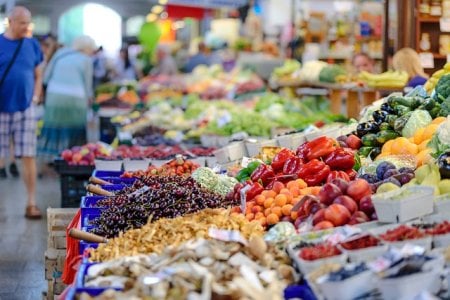Leaked emails expose how supermarkets profit more while customers ‘get screwed’
By
Seia Ibanez
- Replies 34
The Australian supermarket industry is dominated by two major players, Coles and Woolworths, who, together, control a staggering 65 per cent of the grocery market.
This duopoly has long been a subject of scrutiny, with critics arguing that it stifles competition and leads to higher prices for consumers.
Now, leaked emails and insider accounts have shed light on the tactics these supermarket giants use to profit from rising prices, despite their public assurances of doing everything possible to keep grocery bills down.
The leaked emails reveal a fascinating insight into the negotiation tactics employed by Coles with a supplier seeking a price increase.
The supplier, a multinational company, requested a price increase of around five per cent to cover its rising costs. Coles initially dismissed this request, citing 'customer needs' and the 'competitive environment'.
However, the emails show that the supermarket giant later agreed to the price increase, but only after demanding a one-off payment from the supplier to cover a so-called 'gap' that the price increase would allegedly create.
The source of the leaked emails, an employee of the multinational supplier, said, ‘Now this gap is, truthfully, made up. There's no rhyme or logic behind it.’
‘When I questioned where this gap came from, they only shared with me an image, not even the actual data.’
The supplier was expected to bridge this 'gap' either by accepting a lower margin or making a one-off payment to the supermarket.
In this case, the supplier opted for a $25,000 one-off payment, which was supposed to be used for online promotions.
Despite initial concerns about the impact of the price increase on customers, Coles accepted the supplier's offer and implemented the full price increase.
‘Thank you for your continued support,’ the Coles buyer wrote.
The source claimed that Coles not only pocketed the $25,000 in promotion money but also passed on the full price increase to customers.
When asked what this meant for the customer, the source said, ‘They're the ones that are getting screwed.’
‘It just means higher prices [on] the shelf because the supermarkets are extremely greedy.’
‘Their main objective with these price increases, regardless of what they're saying to the public, is a margin enhancement exercise. They want to make more money for every price increase that goes through the supermarkets.’
Coles Chief Executive Leah Weckert dismissed the claim that this amounted to price gouging.
‘You have an email from one supplier, we have over 8,000 suppliers that we work with,’ she said.
‘We have a team of people whose job it is to look to validate cost, price increases, and we take that job very seriously.’
The leaked emails also showed Coles asked the supplier to explain how its costs increased.
However, when the supplier refused, Coles did not ask for more evidence that the price increase was genuine.
An industry insider revealed that Woolworths has been employing a similar strategy to increase its profits.
About 18 months ago, the supermarket giant reportedly began using inflation as a cover to increase its own profit margins.
When suppliers requested price increases, Woolworths would ask to 'share' in these increases by requesting a portion of the increase to be paid back to the supermarket.
This meant that while consumers ended up paying more, suppliers did not receive the full price increase, and Woolworths would allegedly be able to boost its profit margins.
Woolworths Chief Executive Brad Banducci clarified that the company is not employing these tactics.
‘When a supplier asks for a price increase, we would like to engage to make sure it's based on true cost increases. And so we are very keen to make sure we don't pass on anything more to our customers than is required,’ he said.
Woolworths' latest annual report supports this claim, showing that its pre-tax profit margin from selling groceries rose from 5.3 per cent to 6 per cent last financial year, an increase worth an extra $318 million in profits.
Meanwhile, its cost of doing business remained flat.
Banducci denied that these numbers resulted from the price gouging.
‘There are many things that go and drive the delivery of that result. It's a lot of hardworking productivity and investment,’ he said.
‘I've reviewed the supply cost increases, which we'd have to agree in many cases would've been legitimate.’
‘Between the price on the shelf and the cost increase from the supplier. Those have been in lockstep.’
Julian Hilliard, a retail veteran with 38 years of experience, including roles at both Coles and Woolworths, confirmed this lack of price competition.
'I would probably say that if you did five shops in Woolworths and five shops in Coles…you'd be a few cents difference maybe depending on the specials,' he said.
In light of this situation, a parliamentary inquiry is set to proceed in early 2024, and it will undoubtedly be a pivotal moment for the Australian grocery industry.
The inquiry is expected to scrutinise whether customers are subjected to 'price gouging' during economic hardship, own brand products to market concentration, corporate profit hikes and the extraction of cost-savings from employees and consumers through automation. You can read more about it here.
 Have you noticed a significant increase in your grocery bills? Share them with us in the comments below.
Have you noticed a significant increase in your grocery bills? Share them with us in the comments below.
This duopoly has long been a subject of scrutiny, with critics arguing that it stifles competition and leads to higher prices for consumers.
Now, leaked emails and insider accounts have shed light on the tactics these supermarket giants use to profit from rising prices, despite their public assurances of doing everything possible to keep grocery bills down.
The leaked emails reveal a fascinating insight into the negotiation tactics employed by Coles with a supplier seeking a price increase.
The supplier, a multinational company, requested a price increase of around five per cent to cover its rising costs. Coles initially dismissed this request, citing 'customer needs' and the 'competitive environment'.
However, the emails show that the supermarket giant later agreed to the price increase, but only after demanding a one-off payment from the supplier to cover a so-called 'gap' that the price increase would allegedly create.
The source of the leaked emails, an employee of the multinational supplier, said, ‘Now this gap is, truthfully, made up. There's no rhyme or logic behind it.’
‘When I questioned where this gap came from, they only shared with me an image, not even the actual data.’
The supplier was expected to bridge this 'gap' either by accepting a lower margin or making a one-off payment to the supermarket.
In this case, the supplier opted for a $25,000 one-off payment, which was supposed to be used for online promotions.
Despite initial concerns about the impact of the price increase on customers, Coles accepted the supplier's offer and implemented the full price increase.
‘Thank you for your continued support,’ the Coles buyer wrote.
The source claimed that Coles not only pocketed the $25,000 in promotion money but also passed on the full price increase to customers.
When asked what this meant for the customer, the source said, ‘They're the ones that are getting screwed.’
‘It just means higher prices [on] the shelf because the supermarkets are extremely greedy.’
‘Their main objective with these price increases, regardless of what they're saying to the public, is a margin enhancement exercise. They want to make more money for every price increase that goes through the supermarkets.’
Coles Chief Executive Leah Weckert dismissed the claim that this amounted to price gouging.
‘You have an email from one supplier, we have over 8,000 suppliers that we work with,’ she said.
‘We have a team of people whose job it is to look to validate cost, price increases, and we take that job very seriously.’
The leaked emails also showed Coles asked the supplier to explain how its costs increased.
However, when the supplier refused, Coles did not ask for more evidence that the price increase was genuine.
An industry insider revealed that Woolworths has been employing a similar strategy to increase its profits.
About 18 months ago, the supermarket giant reportedly began using inflation as a cover to increase its own profit margins.
When suppliers requested price increases, Woolworths would ask to 'share' in these increases by requesting a portion of the increase to be paid back to the supermarket.
This meant that while consumers ended up paying more, suppliers did not receive the full price increase, and Woolworths would allegedly be able to boost its profit margins.
Woolworths Chief Executive Brad Banducci clarified that the company is not employing these tactics.
‘When a supplier asks for a price increase, we would like to engage to make sure it's based on true cost increases. And so we are very keen to make sure we don't pass on anything more to our customers than is required,’ he said.
Woolworths' latest annual report supports this claim, showing that its pre-tax profit margin from selling groceries rose from 5.3 per cent to 6 per cent last financial year, an increase worth an extra $318 million in profits.
Meanwhile, its cost of doing business remained flat.
Banducci denied that these numbers resulted from the price gouging.
‘There are many things that go and drive the delivery of that result. It's a lot of hardworking productivity and investment,’ he said.
‘I've reviewed the supply cost increases, which we'd have to agree in many cases would've been legitimate.’
‘Between the price on the shelf and the cost increase from the supplier. Those have been in lockstep.’
Julian Hilliard, a retail veteran with 38 years of experience, including roles at both Coles and Woolworths, confirmed this lack of price competition.
'I would probably say that if you did five shops in Woolworths and five shops in Coles…you'd be a few cents difference maybe depending on the specials,' he said.
In light of this situation, a parliamentary inquiry is set to proceed in early 2024, and it will undoubtedly be a pivotal moment for the Australian grocery industry.
The inquiry is expected to scrutinise whether customers are subjected to 'price gouging' during economic hardship, own brand products to market concentration, corporate profit hikes and the extraction of cost-savings from employees and consumers through automation. You can read more about it here.
Key Takeaways
- Leaked emails suggest Coles has been profiting from price increases while claiming to work to keep grocery bills low.
- Industry insiders claim both Coles and Woolworths have used inflation to increase their profit margins over the last 18 months.
- Woolworths has allegedly been asking suppliers to share in price increases, which has led to consumers paying more and suppliers not receiving their full price increase.
- Despite concerns over rising grocery prices, Woolworths' pre-tax profit margin on groceries rose last financial year, contributing an additional $318 million in profits.









